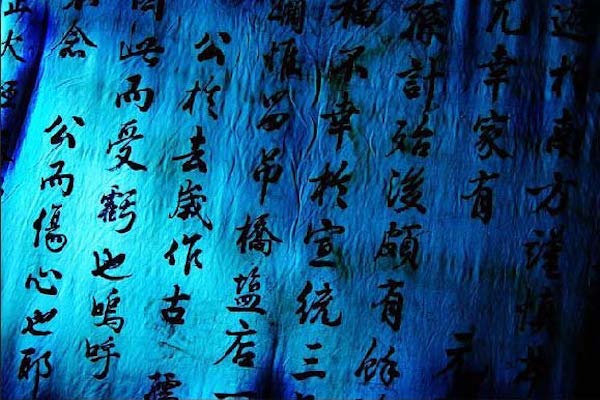
Literature both reflects and affects the human condition. Critically comparing literatures across the world can bring to light questions with regard to how they are judged, and the power relations that inform those judgements. This course takes as its primary theme the subject of ‘Secularism and the Soul’. It examines a range of traditional and contemporary literatures from Japan, Senegal, Mali, Pate and France that touch upon the human being’s place in the material and spiritual worlds. It explores the impact of modernity, and by extension secularism, upon those societies and their literatures. Encounter the realm of twelfth century Nō drama; the epic of Sunjata Keita; Samba Diallo’s existential dilemma encapsulated in the novel, and more. Is there space for the soul to be expressed in contemporary secular literature? If so, how should that literature be critiqued, and how should be it be understood?
Syllabus
| Week One | Why compare? |
| Week Two | Definition of the secular |
| Week Three | Secularism and the soul in modern Japanese fiction |
| Week Four | The journey of the soul in Fula oral literature |
| Week Five | Secularism and the soul in the Senegalese novel |
| Week Six | Secular and spiritual dimensions of ‘the word’ |
| Week Seven | Swahili secular literature – uniting the secular and the soul |
| Week Eight | Secularism and the soul in existential literature |
Aims
- To critically compare pre-colonial and post-colonial literatures from Africa and East Asia.
- To critically explore the epistemological foundations of spiritual and secularised societies.
- To evaluate the impact of modernity on African and East Asian societies, as expressed through literature.
Level
This course is at the level equivalent to a Batchelor’s degree. The rate is standard for a non-accredited short course in the Humanities.
Bibliography
- Abba, Isa alkali, Ibrahim Mukoshy and Gidado Tahir (eds.). Studies in Fulfulde Language, Literature and Culture. (Kano: Bayero University, 1991).
- Bâ, Amadou Hampâté. Kaïdara. Trans. Daniel Whitman. (Washington, D.C.: Three Continents Press, 1988).
- Bâ, Amadou Hampâté. Aspects of African Civilization. http://pender.ee.upenn.edu, visited 08-05
- Bâ, Amadou Hampâté. Oui Mon Commandant! (Arles: Actes Sud, 1994).
- Bâ, Amadou Hampâté. Vie et enseignement de Tierno Bokar, le Sage de Bandiagara. (Paris: Éditions de Seuil, 1980).
- Barthes, Roland. Elements of Semiology. Trans. Annette Lavers and Colin Smith. (New York: Hill and Wang, second ed., 1977).
- Bassnett. Susan. Comparative Literature: A Critical Introduction. (Oxford; Massachusetts: Blackwell Publishers, Reprint 1997).
- Camus, Albert. The Outsider. Trans. Joseph Laredo. (London: Penguin Books Ltd, 1982).
- Carson, Emily Pederson. ‘A Return of Existentialism into Post-Colonial Theory: The Case of Cheikh Hamidou Kane’, in Hal Wylie and Bernth Lindfors (eds), Multiculturalism and Hybridity in African Literatures. (Trenton, N.J.: Africa World Press Inc., 2000).
- Eagleton, Terry. Literary Theory: An Introduction. (Oxford : Basil Blackwell Publisher Ltd., 1983).
- Futabatei, Shimei. Japan’s First Modern Novel: Ukigumo of Futabatei Shimei. Trans. Marleigh Grayer Ryan. (Ann Arbor, Michigan: Center for Japanese Studies, Michigan classics in Japanese studies: no. 1, 1990).
- Hawkes, Terence. Structuralism and Semiotics. (London: Routledge, 1997).
- Jakobson, Roman. Language in Literature. Krystyna Pomorska and Stephen Rudy (eds.). (Cambridge, Massachusetts and London: Harvard University Press, 1986).
- Kane, Cheikh Hamidou. Ambiguous Adventure. Trans. Katherine Woods. (NH: Heinemann African Writers Series, 1972).
- Kyoka, Izumi and Charles Shiro Inouye, Japanese Gothic Tales. http://muse.jhu.edu/books/9780824863098,visited 25-11-2014.
- Kyōka, Izumi. Japanese Gothic Tales. Trans. Charles Shirō Inouye. (Honolulu: University of Hawai‘i Press, 1996).
- Lalani, Arzina R. Early Shī‘ī Thought. (London: IB Tauris & Co. Ltd, 2000).
- Little, J. P. Cheikh Hamidou Kane, L’Aventure ambiguë. (London: Grant & Cutler Ltd., 2000).
- Madubuike, Ihechukwu. The Senegalese Novel, A Sociological Study of the Impact of the Politics of Assimilation. (Washington, D. C.: Three Continents Press, 1983).
- Masterton, Rebecca. ‘Islamic Mystical Readings of Cheikh Hamidou Kane’s Ambiguous Adventure’, Journal of Islamic Studies. (Oxford: Oxford University Press, 2009), pps 21-45.
- Masterton, Rebecca. ‘Islamic Mystical Resonances in Fulbe Literature’, Journal of Islamic Studies. (Oxford: Oxford University Press, 2007), pps 36-58.
- Masterton, Rebecca. Experiencing Immaterial Reality: A Study of the Islamic Mystical Influences in Kaïdara and Ambiguous Adventure. (London: SOAS, unpublished PhD, 2006).
- Said, Edward W. The World, the Text, and the Critic. (Cambridge, Massachusetts: Harvard University Press, 1983).
- Shariff, Ibrahim Noor. ‘Islam and Secularity in Swahili Literature: an Overview’, in Kenneth W. Harrow, (ed.) Faces of Islam in African Literature (NH: Heinemann Educational Books, Inc., 1991).
- Stoddard, William. Outline of Buddhism. (Oakton, Virginia: Foundation for Traditional Studies, 1998), in Abdul Wahid Radhu. Islam in Tibet. Preface Marco Pallis. Trans. Jane Casewit. Gray Henry (ed.). (Louisville, KY: Fons Vitae, 1997).
- Thackston, W. M. Jr., PhD. The Mystical and Visionary Treatises of Shihabuddin Yahya Suhrawardi. (London: The Octagon Press Limited, 1982).
Course date and time
Esoteric Knowledge in East Asian and African Literature: Secularism and the Soul comprises one 90-minute live class per week for eight weeks. Classes are held on Skype. You will need a Skype account (download it for free) and send a contact request on Skype to onlineshiastudies.
Full course option: The course is £130/$170. To book please click on the PayPal button. Once you have booked, you will be sent eight Reading Packs in pdf format, and a syllabus for the course.
Half-course option: You can take either just the first four weeks of the course for £65/$85, or book in two installments by making a PayPal or Master Card transfer to [email protected]
Self-study option: You can also book the course and study in your own time by following the Reading Packs and listening to the mp3 recordings that will guide you through. Write to the tutor with questions. The self-study option is £50/$65.
For more information, please check the FAQs page, or write to [email protected]